One hundred outstanding young scholars met in Washington, D.C. — March 24 to 26, 2010 — to exchange ideas with our country's leaders in government, business and medical research in conjunction with the Social Entrepreneurship Summit of the Catherine B. Reynolds Foundation.
From March 24 to 26, 2010, more than 100 outstanding young scholars met in Washington, D.C. to exchange ideas with 30 of our country’s leaders in government, business and medical research at the first Social Entrepreneurship Summit of the Catherine B. Reynolds Foundation. The student delegates included 70 Reynolds Foundation Fellows in Social Entrepreneurship from both Harvard and New York University, along with representatives of the other scholarship programs supported by the Foundation, as well as the Paul and Daisy Soros Fellowship for New Americans and the Howard Hughes Medical Institute.

The Catherine B. Reynolds Foundation is also a longtime sponsor of the Academy of Achievement; many distinguished Academy members participated in this year’s Social Entrepreneurship Summit, including veterans of the last six presidential administrations. Academy of Achievement members who participated in the Summit included: Speaker of the House Nancy Pelosi; Supreme Court Justice Anthony Kennedy; former Secretary of State Colin Powell; former Treasury Secretary Lawrence Summers; U.S. Energy Secretary Steven Chu, a recipient of the Nobel Prize in Physics; the National Security Advisor to the President of the United States, General James L. Jones; Congressman John R. Lewis; Dr. Anthony Fauci, Director of the National Institute for Allergies and Infectious Diseases; Dr. Francis Collins, Director of the National Institutes of Health; Anthony Romero, Executive Director of the ACLU; labor leader Andy Stern; The Carlyle Group founder David Rubenstein; Pulitzer Prize recipients Rick Atkinson, Neil Sheehan and Donald Graham, Chairman of The Washington Post Company.

The Reynolds Fellows and other student delegates stayed at the historic Willard Hotel, just one block from the White House. Many of the Summit programs were held at the Willard, a center of Washington’s social and political life since it first opened in 1818.

On their first evening in Washington, the Summit Fellows were whisked to the august chambers of the Supreme Court of the United States for an informal meeting with Justices Anthony Kennedy, Ruth Bader Ginsburg and Sonia Sotomayor. Justice Kennedy took the lead, initiating a discussion of the Court’s work and the constitutional issues it considers. As surprising as the informality with which the justices engaged their student guests was the obvious rapport the Justices enjoy with one another, despite their much-publicized differences of opinion on many weighty legal questions. Justice Kennedy emphasized the importance of civil debate with a quotation from Justice John Marshall: “Rational discourse is the safeguard of freedom.” The entire company remained at the Supreme Court for dinner with the Justices, where they heard welcoming remarks from Summit Host Catherine B. Reynolds.

The following morning, the Fellows met a series of exceptional speakers in the first symposium session of the Summit, held in an elegant and intimate meeting room of the Willard. The first speaker, Jacqueline Novogratz, is a prime example of the concept of social entrepreneurship. Founder and CEO of the Acumen Fund, she has channeled philanthropic contributions into self-sustaining enterprises that provide essential services to some of the poorest people on earth. Ms. Novogratz illustrated her address with vivid anecdotes of her experiences, from Africa to South Asia. Describing her entrepreneurial approach to international development, she cited the words of Martin Luther King, Jr.: “Power without love is reckless and abusive, but love without power is sentimental and anemic.”

In an unexpected coincidence, the next speaker was one of her oldest and closest friends, the Executive Director of the American Civil Liberties Union, Anthony Romero. Romero engaged the Fellows in a passionate discussion of the importance of civil liberties in the atmosphere of heightened security prompted by the war on terror. In a memorable tour de force, he asked the students to submit all of their questions first, then deftly answered them in sequence, with perfect recall of the speakers’ names and concerns.

The Summit heard next from the Director of the White House Office of Social Innovation and Civic Participation, Sonal Shah. The Indian-born economist is President Obama’s liaison to social entrepreneurs and the nonprofit sector. The following speaker served in the White House in an earlier administration. David Rubenstein served as a domestic policy aide to President Jimmy Carter, before founding The Carlyle Group, an enormously successful private equity firm with interests in every sector of the economy. Despite these intimidating credentials, Rubenstein charmed the Fellows with his modesty and self-deprecating humor. In addressing the students, Mr. Rubenstein emphasized the importance of building on one’s early accomplishments, rather than resting on one’s laurels.

The last speaker of the morning was a member of President Obama’s Cabinet, Energy Secretary Steven Chu, a Nobel Prize-winning physicist tasked with the enormous responsibility of implementing energy policy in an age of climate change and strained natural resources.

The discussion of finance and government continued over lunch in the Willard’s sunlit Crystal Room, where the Fellows heard from the Director of the National Economic Council and Assistant to the President for Economic Policy, former Treasury Secretary Lawrence Summers. After presiding over the most prolonged economic expansion in U.S. history as Treasury Secretary to President Clinton, Summers served as President of Harvard, his alma mater. After giving a brilliant summary of current national economic issues, Dr. Summers addressed an educational issue dear to his heart, the importance of the mathematical study of probability. Far more students take a course in trigonometry than will ever apply it in their professional lives, he noted, whereas the laws of probability inform decisions that we are all called on to make, no matter what field of study we pursue.

In the afternoon session, the Director of the National Institutes of Health, Dr. Francis Collins, and the Director of the National Institute of Allergy and Infectious Diseases, Dr. Anthony Fauci, shared a lively discussion of the federal government’s role in medical research. Dr. Collins, a pioneer of genetic medicine, is now responsible for allocating the $31 billion the government appropriates for health research. Dr. Fauci, long a leader in the struggle against HIV-AIDS, touched on the current state of this effort. Both men stressed the need for transparency in medical research, which they weighed against the privacy concerns that arise from the collection of genetic and medical data.

The physician scientists were followed by one of America’s most distinguished statesmen, former Secretary of State Colin Powell. As a young infantry officer in Vietnam, as Chairman of the Joint Chiefs of Staff during the 1991 Gulf War, and as Secretary of State at the onset of current conflicts in Afghanistan and Iraq, Colin Powell has had a unique insight into the most crucial episodes of our history. A central figure in American foreign policy and national security for nearly 30 years, General Powell gave the Fellows the benefit of his incomparable perspective on world events, as well as that of his own inspiring life story. Like David Rubenstein, he emphasized that early recognition is no guarantee of sustained achievement, but merely the basis for higher accomplishments.

Another participant with a unique insight into America’s wars, past and present, was journalist and author Rick Atkinson. Recipient of multiple Pulitzer Prizes for reportage, and for his multi-volume account of the American army in World War II, he is also author of the most acclaimed account of the everyday life of combat soldiers in Iraq.

Struggles of another kind were addressed by the last speaker of the afternoon, Andy Stern, President of America’s fastest growing labor union, the Service Employees International Union (SEIU). He received an enthusiastic reception for his discussion of SEIU’s work on behalf of some of the least visible workers in the American economy, and of SEIU’s influential role in the landmark health care legislation — the Patient Protection and Affordable Care Act — that had passed the House of Representatives the previous Sunday.

That evening, the Fellows traveled to Capitol Hill just as the Senate was preparing for a final reconciliation vote on amendments to the health care bill. Senator Olympia Snowe of Maine received one group briefly in her office before taking to the Senate floor to cast her vote. Senator Thad Cochran of Mississippi received the other Fellows in his Capitol retreat, alongside the Senate floor, with a breathtaking view of the monuments. A number of Fellows watched history in the making from the Senators’ private gallery as the reconciliation package received the approval of the Senate and was sent to the White House for the President’s signature, the last act in a political drama that had consumed Washington for over a year.

The Fellows enjoyed dinner in the Mike Mansfield Room, adjacent to the floor of the House of Representatives, where they were met by someone familiar to the Reynolds Fellows from Harvard’s Kennedy School: David Gergen, former advisor to four U.S. Presidents and now the Director of the Center for Public Leadership at the Kennedy School. Mr. Gergen introduced three prominent members of the House of Representatives — Roy Blunt of Missouri, John Dingell of Michigan and John R. Lewis of Georgia — and asked them to share the stories of their own life journeys.

Rep. Blunt of Missouri, the former House Majority Leader and now a candidate for the U.S. Senate, recalled the path that led from service in state and local government to a leadership position in the U.S. Congress. Rep. Dingell recalled his first visit to the Capitol as a boy of six, awed by the largest doors he had ever seen. Now the longest-serving member in the history of Congress, he introduced a measure to provide health insurance for all Americans as a freshman Congressman 55 years ago. He has reintroduced that bill in the first session of every term of Congress since. The passage of comprehensive health care reform by Congress that very week was a dramatic vindication of the struggle Congressman Dingell had waged for more than half a century.

The third Congressman to speak was an American hero — and living legend of the Civil Rights Movement — John R. Lewis. In powerful words, he recalled the rise of the nonviolent protest movement — the lunch counter sit-ins, the Freedom Rides — and the harassment, arrests and physical attacks he and his comrades stoically endured, including the near-fatal beating he received leading a voting rights march across the bridge in Selma, Alabama. That he has now served more than 20 years in Congress, representing constituents who were long denied the right to vote, is a testament to the vitality of American democracy, and a reminder that the freedoms we enjoy were purchased by countless acts of courage, like those of Congressman Lewis.

The Reynolds Fellows and other scholars were stirred by the words of these legislators, but were also surprised by the sincere, collegial respect these Representatives show to one another, a refreshing departure from the media narrative of a House divided by bitter partisan rancor. After dinner, the party was joined by a surprise guest, Speaker of the House Nancy Pelosi, fresh from her legislative victory in the protracted health care debate. The Speaker was received with an emotional ovation from the Summit Fellows, conscious of the momentous nature of the occasion. She offered thanks to President Obama for his tenacity in the long campaign, and recalled a lesson taught by her father, himself a Congressman and Mayor of Baltimore. Many things are valued in the political process, he told her, but in the end, only one thing determines success or failure. “Get the votes,” she said, beaming. “And this time, I got the votes.”

Returning to the Willard after dinner, the assembly heard from writers with profound insight into two agonizing chapters of American history. Jay Winik, the acclaimed author of April 1865: The Month That Saved America, discussed the enduring legacy of President Abraham Lincoln’s leadership during the Civil War. Neil Sheehan first won recognition as a courageous Vietnam War correspondent and later received the Pulitzer Prize for A Bright Shining Lie, one of the most lasting books to emerge from that conflict. Sheehan discussed the tragic complexities of America’s involvement in Vietnam, and the lingering effect of the war on our country today.
The Friday morning session at the Willard began early with an address by Donald Graham, Chairman of The Washington Post Company, the publisher of Newsweek and Slate, as well as the Post itself, the most widely read and influential newspaper in the nation’s capital. The next speaker was well known to the Harvard students in attendance: the former Mayor of Indianapolis, Steven Goldsmith, now a professor at Harvard’s Kennedy School.

Issues of education in Washington’s troubled school system took center stage with an address by Michelle Rhee, Chancellor of the D.C. schools. Like a number of the Fellows in attendance, she began her career as a young leader of the Teach for America program. The energy and commitment she brings to her challenging task of reforming the District’s schools made a powerful impression on the young social entrepreneurs. “You must lead from the front,” she said, “and never expect to be loved by all the people.” After the previous evening’s discussion of the Congressional health care debate, the Fellows heard another point of view from a representative of the health insurance industry, Karen Ignagni, President and CEO of AHIP — America’s Health Insurance Plans.

For Friday’s luncheon the assembly moved to the historic Blair House. Known as the President’s Guest House, this mansion, originally built in 1824, has welcomed foreign heads of state since its acquisition by the federal government during World War II. Its splendid interior is rarely seen by the general public, but the Summit Fellows were treated to a rare tour of its spacious rooms and tranquil courtyard. At Blair House, the Fellows received a summary of defense issues from the President’s National Security Advisor, General James L. Jones.

The national security theme was developed further as the company was taken on a bus trip to Langley, Virginia, and the offices of the Central Intelligence Agency, where the Fellows received a tour and briefing, followed by a visit with one of America’s most respected public servants, CIA Director Leon Panetta. A former U.S. Congressman, Director of the Office of Management and Budget, and Chief of Staff to President Clinton, the warm and genial Panetta helped dispel some of the aura of mystery surrounding the nation’s intelligence services.
At the end of the long day, the Summit participants returned to the Willard Hotel for a reception in the Crystal Room and a final dinner in the elegant Willard Room. Over dinner, David Gergen introduced a series of speakers drawn from the ranks of the Reynolds Fellows, and from the other programs that enjoy the support of The Catherine B. Reynolds Foundation. A graduate of Princeton University who is now a Reynolds Corps Member of Teach for America, Emily Weigel shared her experiences teaching seventh grade English in the public schools of Prince George’s County, Maryland, just outside of Washington. The Catherine B. Reynolds Foundation is also the lead sponsor of the National Geographic Society’s Emerging Explorers Program, which supports dozens of enterprising scientists and photographers at the National Geographic Society. They were represented by Alexandra Cousteau, founder of Blue Legacy, an organization dedicated to the preservation of our marine environment. Combining multimedia and social networks, she is carrying on the work of her grandfather, Jacques-Yves Cousteau, and her father, Philippe Cousteau.

The Reynolds Graduate Fellows from Harvard were represented by Sarah Dillard, who is completing a joint degree in Public Policy at the Kennedy School and an MBA from Harvard Business School. She is a founder of the National Math and Science Initiative, a non-profit that identifies successful math and science education programs and extends them to new locations. The current class of 38 Catherine B. Reynolds Foundation Fellows at New York University were represented by Magogodi Makhene. Ms. Makhene grew up in Soweto, South Africa during the last years of apartheid. As a Reynolds Graduate Fellow at New York University’s Gallatin School, she is studying the use of private equity and venture capital as vehicles for economic development in sub-Saharan Africa. The final speaker of the Summit, Cesar Francia, grew up in Caracas, Venezuela. He studied International Politics as a Reynolds Fellow at New York University and he will soon be returning to NYU to earn a Master’s in Public Administration. He is currently serving as an intern in the office of U.S. Supreme Court Justice Sonia Sotomayor.

After more than two days of discussing the most serious issues of our times, the Summit delegates enjoyed the chance to unwind with a few hours of music and dancing. The Reynolds Fellows and the other scholars, along with many of the Academy’s distinguished guests, hit the dance floor, celebrating the spirit of fellowship they had found among their fellow scholars, and the new friendship formed over two and a half eventful days of enlightenment and inspiration.
The heartfelt enthusiasm and genuine, unaffected gratitude of the student delegates are among the most rewarding aspects of the International Achievement Summit. We invite you to share in their close encounters with Academy members and fellow delegates, as described in their own words.
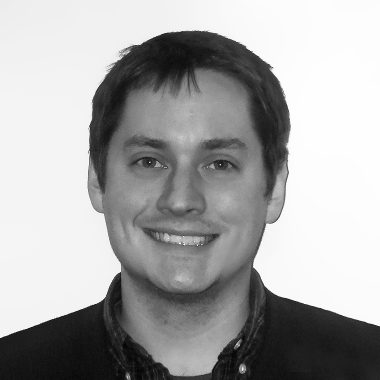
Matthew Sisul
Catherine B. Reynolds Foundation Fellow, Gallatin School of Individualized Study, New York University
|
Dear Mr. and Mrs. Reynolds, Reflecting back on the 2010 Reynolds Summit in Social Entrepreneurship in Washington D.C., held merely two weeks ago, it is difficult to convey the wonder and excitement brought on by the entire experience. Most immediately, I am struck by the gratitude I feel for the fantastic opportunities you have afforded me, through the Summit in D.C. and, more generally, through the NYU Reynolds Fellowship, as well as how in debt I am to you and to everyone who has supported me in reaching the place I am today. To say the conference was incredible may, perhaps, sound trite, but “truly too extraordinary and improbable to be believed” describes perfectly how I feel about the Summit. Every detail, from the speakers, to the facilities, to the places we visited and the access we were afforded, seemed surreal, yet it happened. Not that we could afford to sit back and bask in the improbability of our surroundings, as every moment had its own significance and we did not want to miss a thing. Events were punctuated with opportunities to meet and interact with other graduate students, varied in their disciplines and goals, but unified by their awe-inspiring achievements and their collective vision for the common good. However, we could not lose sight of the fact that we were, in reality, the audience and special guests to a bevy of world changers and luminaries from a spectrum of disciplines as wide-ranging as the students themselves. As we listened to the personal stories of Supreme Court Justices, men and women of Congress, directors and managers of non-profits and for-profits, and shared intimate spaces with them, it was hard to avoid feeling intimidated by this impressive collection of speakers, all working to realize change in the world as great as their passion. While I could not do justice to all the speakers and topics brought out during the Summit, I would like to touch on those that most shaped my experience. First and foremost, Jacqueline Novogratz made a vivid impression on me. I found her work, investing in individual entrepreneurs around the world, especially relevant and thought-provoking in light of my interest and work in partnering with developing communities around the world and collaborating to make a positive difference. |
Other speakers were more daunting, perhaps as a result of the immense power they hold and the great halls they inhabit (for example, the Supreme Court and the U.S. Capitol Building), or of the problems keeping them awake at night, which they identify as the responsibility of my generation. Larry Summers, well known for his candidness, articulated three problems, the resolution of which will require an innovative generation of change-makers. He spoke about the U.S. debt, which continues to increase, and which cannot be passed down from generation to generation in perpetuity. He also spoke about the inherent conflict that arises from our parties’ contrasting approaches to international relations: one party remaining firmly against international trade, and the other party fighting any attempt at cooperation with international institutions. Finally, he spoke of an issue that hit particularly close to home for me, particularly in a development context: that of the character of jobs necessary if we achieve full employment. As we increase productivity and competition, what jobs might people take on, and what kind of education will be required to meet those needs? In an international development context, that point touches on diverse issues such as urbanization, local economic development, the role of the state, and more directly related to my personal work, planning for infrastructure development.
Interspersed between intense discussions about those and other pressing issues of the world today were bits of wisdom and wit that kept us all grounded. I especially enjoyed some of the statements of David Rubenstein and General Colin Powell, neither of whom was afraid to poke some fun at us, as “future change-makers.” I will forever remember General Powell walking up to the podium and, with irreverent glee, commenting on the fact that we would all change the world and remarking that he was “quaking in his shoes” from our presence. His point was well made, because, in actuality, how many people really get to change the world? While his suggestion that we focus on changing a small part of the world may have gone against the positive reinforcement with which many of us in the audience are more familiar, it helped to make our efforts seem more manageable, as well as to set out a path. Rubenstein also challenged us, lauding us for “winning the first third of our lives,” but warned us that not everyone who won the first third will necessarily win the second or final third of their lives.
It was a simple, yet powerful, statement and a reminder to us all never to ride our own coattails of success, but to continue to work and to strive in everything we do.
|
While it would please me to write on and on of the anecdotes and bits of wisdom I acquired during the Summit, I will stop there, as the purpose of this letter is really to convey how grateful I am for these truly once-in-a-lifetime opportunities — my graduate fellowship and the Summit — as both have shaped the goals and passions that drive my actions, and will continue to do so. I am indebted to you for all this, and I will repay this debt with a promise that I will not ride the coattails of success, and I will continue to strive to change the world, small part by small part and with luck, larger part by larger part. Finally, thank you, Catherine and Wayne Reynolds, for your support, and for the effort you put into organizing such an amazing event, and a very special thank you to your team, Erin, Maggie, Vanessa, and everyone who did a sensational job at seamlessly organizing what otherwise could have been an overwhelming responsibility. I am not sure I have ever used the expression “Herculean task,” but that sums it up, and they nailed it. Very truly yours, Matthew Sisul |
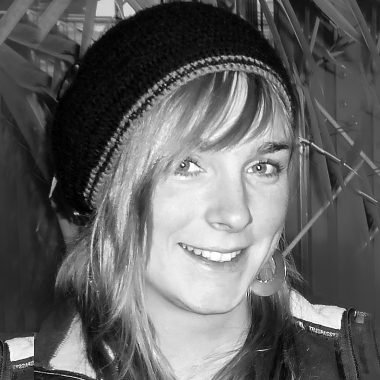
Patricia Schneidewind
Catherine B. Reynolds Foundation Fellow, New York University
|
Dear Mrs. Reynolds, These past few days in Washington have been intellectually stimulating, emotionally moving and humbling. I am writing to thank you for this incredible opportunity. I know I speak in the name of the Reynolds Foundation Fellows community when emphasizing that the Summit has been an important milestone in our academic, professional and personal trajectory. I leave Washington full of awe, and fueled with the passion and urgency to pursue the social changes towards which I aspire. These days have been an incredible testament to the positive power, potential and creativity of humanity. We were lucky enough to hear speakers from almost every social entrepreneurial sector, providing us with valuable insights and words of wisdom from their private and professional experiences. The diverse group of speakers alone once again affirmed the interconnection and the interdisciplinary quality of the social ills — both in their causes and in their remedies. As a passionate human rights activist with a particular interest in human rights legal theory, I was deeply touched by hearing Justices Kennedy, Ginsburg and Sotomayor allude to social justice based on the powerful social contract of democracy. The imagery of our reality as a collective society and a contributor to history being symbolized through the majestic marble hallways of the Supreme Court was so powerful that it brought tears of understanding to my eyes. This statement was especially powerful because I was born in the former Eastern Germany, and grew up with my parents constantly emphasizing the importance and necessity of constitutions and legal systems firmly grounded in principles of liberty and the rights of the individual. The Justices’ presences were astonishing; their words were utterly eloquent and their message was one of touching humanism. I believe the importance and the deep meaning of being able to experience a glimpse of the Supreme Court was felt by all. The wave of silence that travelled through the crowd, from one Fellow to the next, connecting us all, embodied this deeper understanding, and was furthermore another testament to the power of bringing together like-minded, brave and innovative pursuers of social change. |
Likewise, Anthony Romero’s ardent speech affirmed my urge to pursue a career in human rights advocacy by becoming a human rights lawyer. Furthermore, as an international relations major I was struck by great disbelief and excitement when hearing General Jones speak on the very topics of foreign policy and international affairs which I spend hours of my life passionately following.
Being able to soak up the speakers’ philosophies and inspiring personal stories with such a dedicated and passionate group as the Reynolds family gave the trip and the speeches another level of significance for me. Triggered by the insightful speeches and personalities, every intermission was filled with passionate discussions and debates amongst all of us. We all felt the individual and collective sense of responsibility as well as the creative genius of change. I was deeply moved by the willingness and excitement of my fellow Reynolds scholars to support me in my endeavour of building an all girls secondary school in Tanzania: Genesis immediately agreed to perform in the fundraiser for the pilot class next week, and gave a wonderful shout-out for the project while performing at the Reynolds Summit.
Hence, the group of people that you so generously bring together truly embody, both individually and collectively, the Reynolds mission of a multi-faceted and innovative approach to contemporary social problems. By uniting so many young individuals who are pursuing their passions for social change in such a wide range of fields, we are made aware of the complexities and the vastness of each of our disciplines. You are helping to bring out the creative genius in all of us, and are truly building a robust generation of social engagement. For that, I would like to once again thank you.
Warm regards,
Patricia Schneidewind
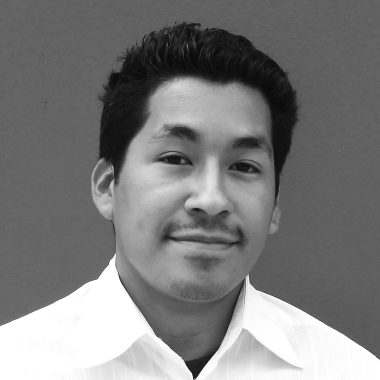
Ralph Vacca
Catherine B. Reynolds Foundation Fellow, Steinhardt School of Education, New York University
Dear Mrs. Reynolds,
I’d like to begin this letter with two words that I feel best capture my experience on our amazing trip to Washington, D.C.: “humbling” and “inspiring.” What began with an e-mail noting we would potentially meet with some political figures that are shaping the future of our nation, came alive as a humbling and inspiring journey whereby we would rub shoulders with leading political commentators, community organizers, politicians, lawmakers, and in general, pretty amazing people. What followed was, in all honesty, a poignant experience in which not only did I have the opportunity to meet and be inspired by some of our nation’s most notable leaders, but also share the experience alongside amazing NYU and Harvard students that endlessly debated the issues and comments made throughout the day.
As a child of immigrants from Peru, walking up the steps of the Supreme Court and hearing Justice Sotomayor, who grew up in the same neighborhood I did, filled me both with pride and a renewed focus to push beyond any walls I may face moving forward. Hearing Anthony Romero discuss his perspectives on upholding the rights of all humans regardless of personal perspectives, and Andy Stern’s words on the importance of collective force, was a reminder of all the work that lies ahead. As we as a society forge ahead in making positive social change,
I’m reminded by the words Congressman John Lewis so graciously provided when I met him, in which he said, “Keep the faith.”
With these few words I would like to express my deepest gratitude and to let you both know that I have come away slightly changed. I have come away with experiences that not only speak to the importance of striving for political change, but also speak to your commitment to supporting our efforts and inspiring us to forge ahead. Thank you.
All the best,
Ralph Vacca
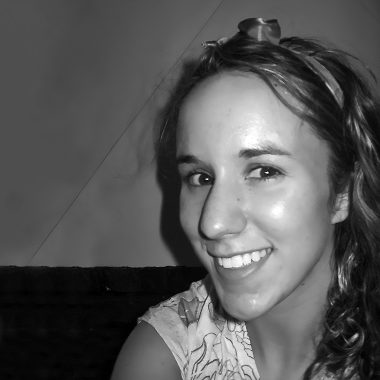
Hannah Davis
Catherine B. Reynolds Foundation Scholar, Gallatin School of Individualized Study, New York University
|
Dear Mrs. Reynolds, When I returned to New York after the Academy of Achievement, I didn’t know how to put the three days spent in D.C. into words. My friends outside of the Reynolds program asked me how it was and for the first few moments of every such conversation, I just opened and closed my mouth like a goldfish, unable to find words that could explain the experience in an honest way. The speakers were incredible, and every single one taught me something new or inspired me in a new way. Dr. Francis Collins and Dr. Anthony Fauci spoke about the mentality that scientists have — a “community of responsibility.” Nothing seemed more apt than to immediately identify that as something to which the community of social entrepreneurs should also strive, and I hope to be someone who facilitates that mentality within the field. Colin Powell was also an inspiring speaker. In his very down-to-earth manner, he reminded us that doing good is not enough — true change is brought about by creating “wealth.” Though “wealth” may mean something different to each social entrepreneur, this is the general idea that makes social entrepreneurship different from nonprofit work — we have to rely not only on our empathy and compassion, but also on our rationality — to think not only in terms of what will be good for the moment, but what will be good in the long term, what will be sustainable. It was also amazing to see and listen to Anthony Romero speak. He is such an excellent example of someone with a high level of commitment and a sense of what is “right,” and he inspired me to remember these attributes in my own life and work. Social entrepreneurship is a new field and a new territory. In being so it is often lonely, occasionally dangerous (depending on where one works), and almost always tiring. It is a difficult field, and it is a continuous struggle to believe in something “good” in a world that often proves otherwise. But you have changed that environment for the Reynolds Fellows. You have allowed us to create a community that not only eliminates the isolation, but helps us build each other up, providing unlimited encouragement. Even more than the financial awards, this hopeful, supportive, caring atmosphere you have helped create will play an incredible role in furthering us in our endeavors. |
Being a participant at this year’s Academy of Achievement has reinforced and solidified that feeling in me — the feeling of ability, of strength. Whenever I have doubts, I will always remember these days, and the knowledge that there are people like you who wholeheartedly believe in us and our work.
I have never in my life felt the way I did last week, and I cannot thank you enough.
Warmly,
Hannah E. Davis
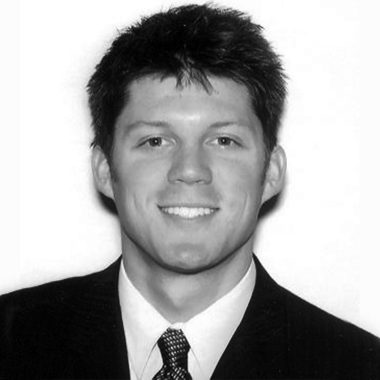
Adam Gromis
Catherine B. Reynolds Foundation Fellow, Stern School of Business and Robert F. Wagner School of Public Service, New York University
|
Dear Mr. and Mrs. Reynolds, Please accept this simple letter as a humble representation of my deepest gratitude for allowing me to participate in the magical tour you arranged in front of many of Washington, D.C.’s greatest present day leaders, May 24-26. As soon as we stepped toward the main dais of the Supreme Court, where they “hear oral arguments,” I was certain I had been given the chance to be part of something special. As soon as Justice Ginsburg, white gloves and all, took her seat next to Justice Kennedy with such an incredible air of both humility and dignity, I knew I had been offered the chance to witness something extraordinary. By dinner, as Justice Kennedy offered a history lesson of the Court with the help of those venerable figures, adorned in oil paint, hanging on the walls, I realized you both had given me a once-in-a lifetime, never-again opportunity. Thank you, from the bottom of my heart. On the second day, Thursday, March 25, Dr. Francis Collins, your dear friend from the National Institutes of Health, quoted Peter Levi, who said,
This simple yet powerful insight will forever haunt my memories of the D.C. experience you made possible — through a haunting that stirs my deepest awareness and sense of urgency, if not all my Reynolds experience. My work launches from the incredible privileges you have extended me during my education at NYU. Stepping into the breakfast room at the Willard Hotel on Saturday morning, smiling at the faces of my new friends and colleagues from Harvard and my forever teammates from the NYU program, I found myself full of a profound hope, ready to respond to a million calls to action. Ready, even, to step up to General Colin Powell’s wonderfully sarcastic challenge expressed at the beginning of his talk, wryly asking if we were “going to change the world?” No Sir, not me alone, but with my friends and our communities and our neighbors, we will continue the great work of change. Mr. and Mrs. Reynolds, your generosity has allowed me the space to see, with clarity, this potential. Thank you. |
|
Through the magical mystery tour you arranged for us in Washington, I became particularly struck by your clear attention to bringing not only renowned thought leaders and seasoned change makers into dialogue with us, but a diversity of opinions into the room. From David Rubenstein to Andy Stern, from Steven Goldsmith to Michelle Rhee, from Speaker Nancy Pelosi to Leon Panetta, I found myself chastened by your clear intention to create conversation through multiple points of view. This example encourages my reverence for the power of diversity and spurs my desire to pursue multiple wisdoms, especially those that I may, at the outset, disagree with or find difficult to understand. Clearly, as you’ve demonstrated, we can only find complex solutions for the complex problems we face through the dialectics uncovered by a community of varied thought. Thank you. Through the Catherine B. Reynolds Fellowship Program you made possible for me here at NYU, I already owed you a debt of gratitude and great responsibility to leverage my faculties and make great change in the world. Now, with the memories, sacred wisdoms, and insights you allowed me via your dearest friends in D.C. — who happen to be some of the greatest leaders in Washington, D.C., not to mention the United States — it will be my great task to honor your magnanimity through the pursuit of a lifetime of work toward positive change, particularly for those not extended the opportunities I have been given. Thank you. I look forward to our next opportunity to dialogue together, and an opportunity to express my unending gratitude in person. Respectfully and sincerely, Adam Gromis |
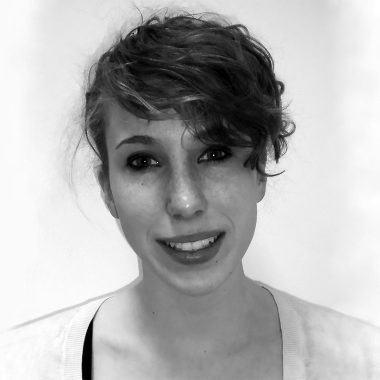
Anna Smukowski
Catherine B. Reynolds Foundation Scholar, New York University
|
Dear Mr. and Mrs. Reynolds, The Catherine B. Reynolds Foundation Social Entrepreneurship Summit was largely shrouded in mystery. Our pre-trip departure meetings were full of speculation over what we might get to see, and who we might get to meet. The moment I arrived in D.C., I knew that whatever we speculated would be far surpassed by what we actually got to experience. For this, I want to thank you both. For the opportunity to be surprised, amazed and inspired by my mentors and my peers. I’m still trying to find the words to express my gratitude for this experience and my experience as a Reynolds Scholar. The Summit exposed me to the power of narrative and the power of peers. What stood out to me most over the weekend was the voice that each speaker used to convey their message and the power it had to transform my thoughts. I never imagined that a Justice of the Supreme Court could be as humorous as Anthony Kennedy, the director of the ACLU could instantaneously make you feel like you were his best friend like Anthony Romero, or the leader of the fastest growing union in North America could make us believe he is where he is due to free pizza like Andy Stern. Each speaker had an incredible story to tell, and told it in the most amazing way. What moved me the most over the weekend were the relationships each speaker had with your family and with each other. When Jacqueline Novogratz first realized that Anthony Romero was speaking after her, I felt moved in a way that no speaker’s words had the whole weekend. She somewhat shrieked at the sight of him and then said “you guys don’t understand, he’s like my brother.” From that point on I realized that this Summit was far more than hearing from the speakers brought in, but about forging a bond like that between Romero and Novogratz among our peers. Within every narrative, the importance of relationships came up again and again. From this trip, I have forged a peerless bond with my fellow Fellows and scholars. From now on, we can joke about how the realities of our life led us to dancing with Wolf Blitzer, discuss the tremendous privilege we had in seeing the inner workings of the Supreme Court and hypothesize over what questions we really want to know but were afraid to ask of the CIA. |
|
Now that I’m illuminated by this experience, I am still in disbelief over the incredible opportunity I had to hear from some of the most impressively articulate minds of our time. From this trip I have been inspired to work on the power of my own narrative to inspire and change my peers, and as Colin Powell put it, “change the world.” I know I have amazing minds before me and brilliant minds beside me and feel more inspired than ever to carry out my commitment to social justice. For this, I am grateful. Sincerely, Anna Smukowski |
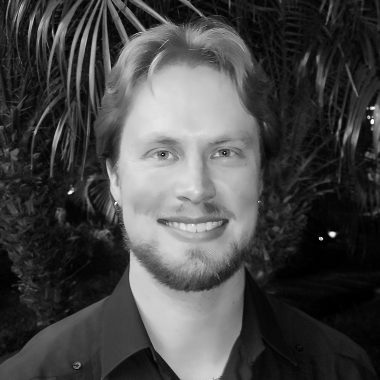
Benjamin Cokelet
Catherine B. Reynolds Foundation Fellow, Robert F. Wagner School of Public Service, New York University
|
Dear Mr. and Mrs. Reynolds, It is once again with enormous gratitude for your generosity and tremendous pride for our cohort of Reynolds Fellows and Scholars that I write to you. Our recent experience together in our nation’s capital underscored for me, and I dare say all of us at New York University, the incredible added value that you both personally bring to the students who you sponsor. Each of our experiences is wonderfully enhanced by the careful and thoughtful energy that you inject into all of our activities. In the past year I have shared three such experiences with you and each time I depart thinking that the dynamic has reached its pinnacle. And each time I have been blissfully wrong. As a human rights advocate, I was particularly touched to be seated at the same table with Congressmen John Lewis and John Dingell during our visit to the U.S. Capitol. I had the good fortune to spend several minutes learning from Congressman Lewis about the impact that the recent health care legislation will have for our country. In particular I was touched, and also in complete agreement, that he thought this legislation represented one of a handful of high points in the struggle for civil rights.
And as a worker rights organizer, I especially valued the unique opportunity to speak with Andy Stern of the Service Employees International Union and share with him a bit about the corporate accountability and civil society strengthening work that I do in Latin America. Mr. Stern is a perfect example of a dissident but immeasurably important voice, if you will, within the Beltway dialogue. I recognize and credit both of you for the master stroke in inviting him to speak and share the stories of the men and women who will most benefit from health care reform. His presentation was the perfect juxtaposition to some of the more institutional voices we heard throughout the week. |
|
Most importantly however, as a member of the NYU cohort, I was honored and humbled to see and hear from my fellow students, and others whose lives you have touched, at the banquet dinner on our last evening. The diversity, the depth, the charm, the wit, and certainly the high caliber of all Reynolds students was on display that night. Again, I was fortunate to be seated at a table with Pulitzer Prize winners and other distinguished journalists, and to hear them comment admiringly on our cohort and our achievements, this was the highlight of my experience. Thank you once again for including me and my cohort of one-of-a-kind, fabulous NYU social entrepreneurs in an unforgettable tour de force of decision-making, influence, innovation and vision. Both of you are truly remarkable and I am thankful for the opportunities I have had in South Africa, New York, and now Washington, D.C. to get to know you better. Warmly, your friend, Benjamin Cokelet |
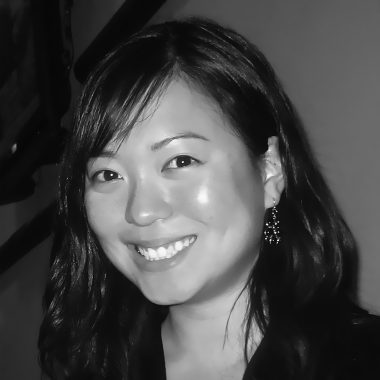
Esther Hsu
Catherine B. Reynolds Foundation Fellow, John F. Kennedy School of Government and Harvard Business School
Dear Mrs. Reynolds,
Thank you for the incredible privilege to visit our nation’s capital and share in the rich conversations and words delivered from your honored guests. It has been an incredible gift to be a part of the Catherine B. Reynolds Foundation Fellowship at Harvard University. For the past two years, this gift has allowed me to pursue many life-changing and formative experiences both in school and in the space that allowed me to investigate other passions and places. Even without the tremendous and still unbelievable experiences of both this year’s Summit in Washington, D.C. and last year’s to South Africa, I thank you for believing in me and giving so generously to our Fellows.
I am still in awe of the three days we spent with you in Washington. Although I have been studying government and policy and have heard various notable speakers in my time in school, nothing can compare to the richness and access you made possible for our Summit in D.C. While it has been difficult to convey to others how it felt to be so close to true pillars of our government and history makers, the magnitude of just their names is usually enough to provide a sense of this remarkable lineup.
For me, I can recall some of the highlights that will stick with me: meeting Justices Ginsburg, Kennedy, and Sotomayor: their grace, eloquence, and humility; Anthony Romero’s poignant recommendation to “find friends and cultivate a common journey” delivered with humor and wit; Dr. Frances Collins and Dr. Anthony Fauci’s compelling words that “hope in every realm of life is a privilege that attaches to an action;” my heart pounding as Secretary Colin Powell took the stage and reminded us of our yet-unproven paths, that we still had a way to go; surprise visit from Speaker Nancy Pelosi, sharing her excitement about the historic health care bill; and Chancellor Michelle Rhee’s fight in the D.C. Public Schools. Finally, the beautiful closing dinner where I was inspired by the words of my peers, and a Teach For America teacher — it was the perfect capstone. I have pages of notes and memories which I could share here, but my purpose is to impart the fact that this time spent with you in D.C. left a true and lasting mark on my conscience and heart.
It is still difficult to understand why I have been gifted so richly. I suspect it is because I will be asked to make sacrifices in the future for greater causes. These are some of the experiences that I will carry with me to remind me of the hope others have placed in me.
With sincere gratitude,
Esther Hsu
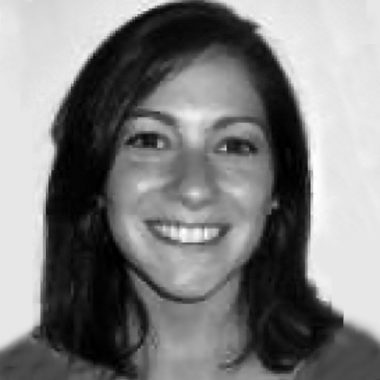
Amanda Cassel Kraft
Gleitsman Leadership Fellow, John F. Kennedy School of Government, Harvard University
Dear Mrs. Reynolds,
I am writing to express my deepest gratitude for an absolutely once-in-a-lifetime experience at the Reynolds Fellowship gathering in Washington, D.C. last week. I never dreamed I would have the opportunity to meet such diverse and accomplished leaders in my lifetime, much less in the course of three short days. I was inspired, energized and challenged both by our impressive speakers and by my fellow students. I am humbled by your generosity. I cannot thank you enough for this unique and wonderful event.
I’d like to share some of my most memorable moments with you.
Jacqueline Novogratz reminded us that in order to change the world, you need not only determination, daring and intelligence, but also humanity and an ability to find beauty in the world and the human spirit under all conditions.
When she spoke about the women in her very first micro-lending effort in Rwanda and told us that during the genocide, they played central roles on all sides of the tragedy, she reminded us of how complex are the challenges we face and the inevitable interplay between progress and crisis in the quest for real change. Then, the surprise and joy in the chance meeting between Ms. Novogratz and Anthony Romero was fantastic. It illustrated perfectly that success is made possible by the love and support of close friends. We may be entrepreneurs, but we cannot go it alone.
I was also particularly affected by Michelle Rhee’s talk. She is in many ways the definition of a social entrepreneur: bold, daring, ambitious in her social goals, tremendously hard-working and willing to “lead from the front.” At the same time, she is one of the most controversial figures in education and perhaps in the American political landscape right now. She really challenged us to consider the trade-offs between political courage and collaboration, between achievement and consensus-building, between staying true to oneself and truly listening to the voices of others. I will continue to think about her comments for a long time to come.
One of the most impressive things about the collection of leaders you invited to speak with us is their diversity. Thank you for challenging us to listen and learn from people on both the left and the right and from the non-profit, business and public sectors. As Justice Kennedy so aptly quoted from John Marshall, “Rational discourse is the safeguard of freedom.”
The opportunity to get to know the NYU Reynolds Fellows, Soros Fellows and Howard Hughes Fellows was also an unexpected treat. My roommate, Genesis, is an undergraduate at NYU who uses her artistic talent as a musician, lyricist and film creator to change the lives of young people. She is just one example of the wonderful people I met with whom I am sure I will keep in touch and draw on as resources in the future.
You have touched the lives of so many people in profound ways through your generosity and encouragement. I am not a Reynolds Fellow, and you were kind enough to include me and many others in this incredible trip. I cannot find the words to thank you enough. As a start, thank you!!
Sincerely,
Amanda Cassel Kraft
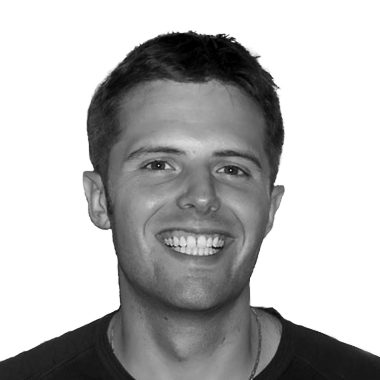
Justin Pasquariello
Catherine B. Reynolds Foundation Fellow, John F. Kennedy School of Government and Harvard Business School
Dear Mrs. Reynolds,
It all seemed — and still seems — unreal. To see Nancy Pelosi hours after she completed the work on historic health care legislation, to see a Congressman who marched at Selma, to meet three Supreme Court justices — and to have those amazing moments only be a small part of a whirlwind three days — is almost unimaginable. Yet, because of the generosity of you and your husband, we had this amazing experience.
Our Summit was truly inspirational, and influences the way in which I think about my ability to make a difference in the world. Through science, policy, media, writing, union organizing, political work, and more, the amazing people you gathered have shaped the world in which we live. I think often about how to make transformational impact, and wonder about the best approach to doing so. Andy Stern inspired me with the work he has humbly done to organize over two million workers to fight for better work conditions. He has bucked the trend of the decreasing influence of unions to build one that played a major role in passing the most important legislation in years. I believe strongly in grassroots organizing; he shows the impact that organizing can have if pursued tenaciously.
Dinner at the Supreme Court increased my reverence for the institution. Seeing Justice Sotomayor — after so recently watching her on television — was incredible. Justice Kennedy was an amazingly gracious and entertaining host. The reverence all three justices showed for the institution in which they serve — and their commitment to working together — truly impressed me.
Michelle Rhee’s passion and energy are highly contagious. Her achievement at the D.C. public schools has truly been amazing. Her commitment and follow through, and her willingness to be unpopular, served as important reminders of the challenges inherent in leadership and of the opportunities that come when one follows the right path despite obstacles in one’s way. I will remember her leadership as I move into higher leadership roles in the future, and will remember not to pay undue attention either to the critics or to those who bring praise.
All the speakers inspired and motivated me. Collectively, they brought many questions, much food for thought and conversation, and a wide variety of perspectives that were truly valuable. Additionally, the other conference attendees provided inspiration and a great sense of fellowship. Already since the conference, I have communicated with NYU Fellows on multiple occasions. We have made introductions to help further each other’s work. At the conference too, I appreciated the new perspective they and the other Fellows brought. At our final dinner, sitting next to one of the TFA Corps members whose position you fund, I gained valuable firsthand knowledge about the experience of working in a challenging urban school environment.
You and Mr. Reynolds also inspire each one of us. With your quiet generosity of spirit, building of relationships, and financial generosity to each of us, you set a great example of leadership for the betterment of society.
Thank you for your generous support and for a great, transformational weekend!
Sincerely,
J. Justin Pasquariello
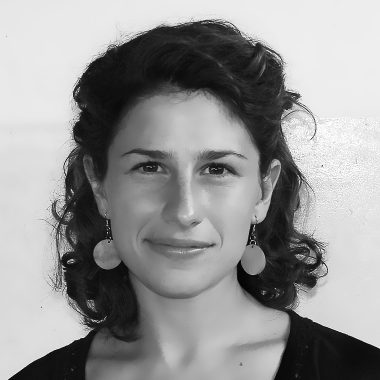
Amanda Epstein
Catherine B. Reynolds Foundation Fellow, Harvard Graduate School of Education
Dear Mrs. Reynolds,
What a few days! I’m not sure where to begin but I’ll just dive in and hope that my memories and impressions and take-aways will convey what an incredible opportunity the Summit was and that my gratitude as a participant will be apparent. For me, some of the highlights included the following:
The Supreme Court, and the chance to hear from Justices Kennedy, Ginsburg and Sotomayor was, of course, unbelievable. It was very special to be at the U.S. Capitol on the day that health care passed. It was so exhilarating to see Nancy Pelosi walk into the room and speak to us so triumphantly. And it was interesting to balance that with the perspective that Karen Ignani brought to us. Hearing Congressmen Dingell, Lewis and Blunt speak with each other and about their work with such collegiality and civility made me wish more Americans had an opportunity to hear from lawmakers in such an environment. At a time when so many of us feel so often disappointed in our leaders and the quality of public debate, it was a moment to restore faith. Hearing Congressman Dingell talk about his father and his family’s journey was a reminder of how great our country can be and how much opportunity it can provide and inevitably led me to think about our system today and the routes to opportunity that are blocked for far too many of our citizens. And of course, sharing a room with Congressman Lewis and hearing him speak about his own journey was a once-in-a-lifetime experience.
When Colin Powell walked in the room, I felt butterflies in my stomach. I felt a bit sheepish after he very sarcastically opened his remarks by saying, “So… I hear you’re going to change the world. Isn’t that special!” It’s good to be taken down a few pegs and reminded that our abilities and possibilities cannot always match our ambition. But as he made his way towards the end of his remarks, he implored us to “reach up, down and across” as we made our way in the world. And he encouragingly closed by saying that we can save a piece of the world — which is a more realistic and manageable way to think about our work, but still grandiose enough.
I learned from the speakers not just by listening to their journey or the advice they offered us, but also in observing the ways they interacted with us, and with each other. Anthony Romero asked us to ask ten questions at once, noted down our names, and then organized the questions and his responses accordingly. As he answered them, he was careful to make eye contact and engage with the student who had asked the question. Watching him and Jacqueline Novogratz run into each other and talk about how important their friendship is to each of them reinforced how grateful I am to have met the other Fellows and how I hope we’ll be able to rely on each other in coming years.
Many of the people who spoke to us emphasized that failure is almost a certainty and that we will likely learn the most from our failures.
I appreciated Larry Summers’s comment that “The good times are never as good as you think they are and the bad times are never as bad as you think they are.” Michelle Rhee’s message to be determined and lead from the front and have the courage to try something new and take risks to succeed was a powerful message. I appreciated David Rubenstein’s self-deprecating humor and very concrete advice about what he thinks makes people successful. I found Rick Atkinson’s stories about war and his closing remark, “This is how it ends, and this is how it always ends,” to be one of the most poignant moments of the trip. I could go on and on about each and every speaker and the little (and big) seeds they planted and the insight and reflection their talks inspired.
This year, being a Reynolds Fellow, has been filled with many stimulating experiences and exciting opportunities. The relationships I’ve developed with my fellow Fellows has been one of the highlights. It’s been such a treat to meet together each week. Often, we’ll have a session with a social entrepreneur and will have a chance to hear about their work, ask questions and respond to the challenges and questions they pose to us. Meeting each week with such creative thinkers and people with big ambitions has been inspiring and highly educational. I am consistently impressed with the creativity and acumen that my colleagues demonstrate in their questions and in their recommendations. On the weeks when we don’t have a speaker lined up, we take turns presenting our ideas to each other and getting feedback. I feel so grateful to know that this is a network that I will be able to count on well beyond this year to help me launch new ideas and to encourage me to stay committed to do good work through social enterprises.
It was wonderful to get a chance to meet the NYU Fellows — a group with much talent and drive and insight. From the impromptu performance of Genesis B to Magogodi’s speech where she chose not just to talk about herself, but to highlight the work of the other NYU Fellows — and all of the time in between on bus rides or at meals in our few minutes of downtime — it was such a pleasure to hear about the work and ideas of the NYU Fellows and to discover new potential thought partners and collaborators and to widen the circle, so to speak.
I’ll bring this letter to a close now and hope that my words have captured my enthusiasm and gratitude at least a little. This year serving as a Catherine B. Reynolds Fellow has been an amazing opportunity and the Summit far exceeded the very high expectations which I had for it. Though I am graduating in May, I am very certain that this year has been just a beginning. I think I will look back on my Fellowship year as a transformative time in my life. I am very excited to be starting my journey up again after this wonderful year of learning, reflection and planning, and I am grateful for the tools, insight, inspiration and relationships I am taking with me.
Sincerely,
Amanda Epstein
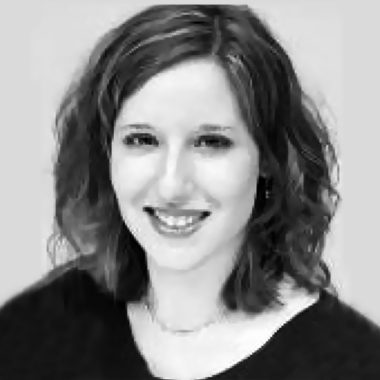
Leah Stern
Gleitsman Leadership Fellow, John F. Kennedy School of Government, Harvard University
Dear Mrs. Reynolds,
One week after I returned home from the Social Entrepreneurship Summit in Washington, D.C., I am still overwhelmed by the incredible experience of spending two and a half days in conversation with some of the world’s foremost thinkers on social change and innovation. I want to thank you for including the Gleitsman Leadership Fellows, including me, in the Summit. I took lessons from the Summit that I am sure will stay with me in everything that I do as an activist and advocate for social change.
For me, one of the most powerful experiences was the very first one, listening to Justices Ginsburg, Sotomayor, and Kennedy discussing the issues facing the Supreme Court and the nation today. I was struck by Justice Kennedy’s openness and down-to-earth nature, and by Justice Ginsburg’s quiet strength. I had the once-in-a-lifetime opportunity to speak with Justice Sotomayor about her experience getting to the court. She told me to live life with respect and humility toward all other people, and I will take her words as inspiration when I am unsure of my path.
The Summit gave me much to consider regarding the role of social entrepreneurship in social change and the need to balance market-based, social, governmental, and other approaches to reducing poverty for people around the world. Jacqueline Novogratz eloquently spoke to the challenge of integrating different solutions to poverty when she described the principles on which she founded the Acumen Fund. Strands of this conversation continued throughout the Summit in the words of Sonal Shah, Larry Summers, Colin Powell, Andy Stern, and other incredible speakers. I was particularly moved, though, when Jacqueline Novogratz quoted Dr. Martin Luther King Jr., who said “power without love is reckless and abusive, and love without power is sentimental and anemic.” Each of the social entrepreneurs who spoke to us is emblematic of that most influential combination of power and love, and I will strive to remember that in my work as an activist and agent of social change.
For me, one of the most powerful aspects of the Summit was the sharing of experiences and perspectives between the Harvard Reynolds Fellows, the NYU Reynolds Fellows, and the members of the Academy of Achievement. Dr. Anthony Fauci’s description of our “pluripotential future” perfectly describes not only the individual Fellows, but the group as a whole. I shared my experience at the Summit with future doctors, lawyers, entrepreneurs, and activists, and our future is surely bright. I had the pleasure of getting to know Magogodi Makhene, who was my roommate for the duration of the Summit, and her story is inspiring. I am eager to see the amazing things she and my other new friends will surely accomplish.
Thank you for your generosity and your vision of social entrepreneurship as a path for social change. All of the leaders who shared their time with us did so with a willingness to have a genuine conversation about how to change the world for the better, and for that too I thank you. The Summit was an unforgettable experience, and one that I know will inspire me in my work and my life.
With warm regards,
Leah Stern
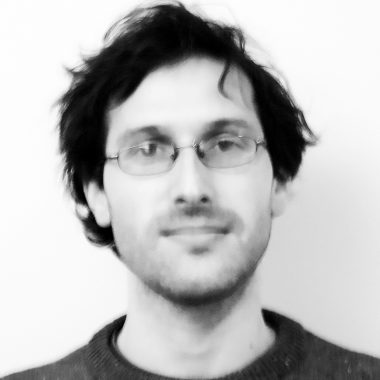
Benjamin Locke
Catherine B. Reynolds Foundation Fellow, New York University School of Law
Dear Mr. and Mrs. Reynolds,
The most remarkable aspect of my experience of being a Reynolds Fellow has been the sensation of being ushered in from the outside. Whereas my work as an advocate often focuses on the points of contention that divide, much of your work is trained on bringing us together, from all sides of the discourse, to meet on the common ground of our shared passion and idealism. It was this spirit of solidarity bridging the gulf that marked our visit to Washington, D.C. and which I hope will continue to mark my future work.
In such a rare zone of confidence, our speakers laid bare their hopes and their struggles with uncommon earnestness and sincerity.
Although we witnessed this repeatedly throughout our three days, it was never so poignant for me as on that first evening at the Supreme Court when Justice Sotomayor shared with us the advice given her by departing Justice Souter. He told her to trust in the good faith of her colleagues on the bench. Indeed, even through the debates that divide the Court, polarize the nation, and inspire zeal and outrage of a magnitude to rock our political system, an abiding belief in the good faith and the humanity of the individuals who struggle mightily to uphold the mandate of that sacrosanct institution is essential for shoring up the common ground they share and binding them in common pursuit of some greater justice.
The message came through at other moments, as well. The colloquy between Representatives Dingell and Blunt stressed the centrality of personal bonds and mutual respect in facilitating the Congress’s tolerance for deep political division. In my conversations with former FBI Director William Sessions and his wife during our closing reception, I had the chance to hear a little bit about the weight he personally accorded to making peace between the FBI and civil rights activists who, for too long, were surveilled, suspected and maligned by the Bureau. It was most vividly expressed by Anthony Romero and Jacqueline Novogratz who, by their example and by their words, underscored the importance of building our own collaborations and communities upon friendship. In that vein, I believe one of the greatest benefits of the trip was the time I had with my peers from NYU, Harvard and all the other fellowship programs represented in our group, as we began to lay the foundations of our own community through long conversations that are just getting started.
So I understand now that it was no small thing when each speaker introduced him- or herself as “a friend of the Reynoldses.” The statement signals that we are in trusted company, speaking sincerely, with mutual respect and in common league. As an outsider coming in from the field of debate, I want to thank you for giving me entrance to this circle of confidence. The space you create to bring together passionate and concerned idealists from across the ideological spectrum is, I believe, an incredible safety harness for those of us who work right at the precipice of cynicism. I am absolutely thrilled and honored to be a part of it.
With very deep gratitude,
Benjamin Locke
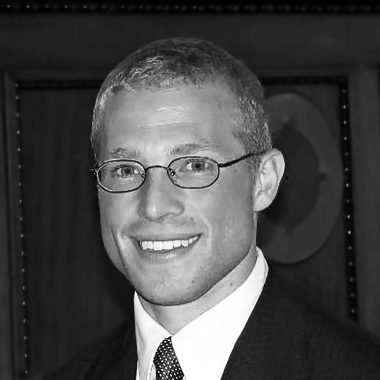
Matt Joyce
Catherine B. Reynolds Foundation Fellow, John F. Kennedy School of Government, Harvard University
Dear Mr. and Mrs. Reynolds,
Thank you for a wonderful experience in Washington this March. What was such a stimulating couple of days has begun to sink in over the last two weeks, and it has been exciting to apply some of the inspiring and challenging messages of our guests to my own thoughts and conversations. I wanted to share two quick experiences from the D.C. trip that I had found particularly formative.
After hearing from Sonal Shah, Colin Powell, and Andy Stern speak from their various perspectives about service and job creation, I ended up in a long conversation with Ben, one of the NYU Fellows, about the prospects of creating a social enterprise around weatherization and energy efficiency in lower income communities. I come from a national service background and Ben’s been working with the labor movement in the U.S. and Mexico, so we took a somewhat different perspective on this field. Ben spent the hour trying to convince me that if there’s a market for weatherization, then the field should create good paying private sector jobs. I took the perspective that if I can engage volunteers to do the work then we can increase productivity and scale. In two years of economics, this issue had never come up: for fields with significant overlap in potential volunteer and for-profit labor forces, what do market forces dictate? Which model generates the most impact? It was an exciting and thought-provoking conversation, and Ben and I have vowed to keep the discussion going.
Secondly, the line that has stayed with me most resonantly over the past two weeks, especially as I consider where I’ll be upon graduating this May, is David Rubenstein’s “three stages of life.” He commended all of us for success in our first stage, but assured us that it by no means assures success in stage two. All of us ended up as part of the Reynolds Fellowship because we were willing to take some risks early in our careers, and now, with valuable degrees from Harvard and NYU, there will be opportunities to change the calculus and settle into more predictable circumstances. But Mr. Rubenstein’s words have motivated me to consider strongly what success means as I approach this second stage. He encouraged us all to continue to take risks and build from this incredible opportunity we’ve just had, rather than use it as a means to coast. His words carried weight with all of us, and I look forward to keeping them close as I pursue my next challenge.
It was such a pleasure meeting the incredible group of Fellows and scholars you’ve assembled through your philanthropy, and being exposed to the inspiring group of friends you’ve made in D.C. and across the world. Thank you both for three unforgettable days in Washington and two outstanding years in Cambridge.
All the best,
Matt Joyce
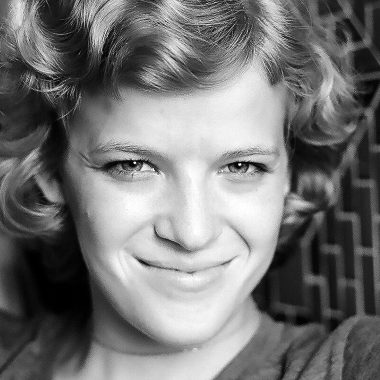
Annie Escobar
Catherine B. Reynolds Foundation Scholar, New York University
Dear Mrs. Reynolds,
I would like to take this opportunity to sincerely thank both you and Mr. Reynolds for everything you have added to my life. The Summit in D.C. was truly life changing. This experience will live in my memory, not only as an incredibly stimulating and downright fun few days, but also as a turning point, transforming what I believe to be possible for myself.
In the course of three days, I completely re-imagined where I want my career to head.
Anthony Romero’s words on the importance of recognizing your skills and building on your strengths spoke to me very deeply. I was also moved by Jacqueline Novogratz’s reflection on how those living in extreme poverty still find ways to fill their homes with beauty. As a photographer who often tells stories of those who are socially marginalized, I was re-inspired to challenge the dominant view of poverty that photography often re-enforces. Through my conversations with the other attendees of the Summit, I was able to hear genuine feedback and concerns about my idea for a business that creates photography and multimedia platforms for not-for-profits. On the second morning of the summit, J.P. of the Harvard Reynolds program (who I had just met the night before) approached me, unsolicited, with a whole list of thoughts and suggestions about my new direction. This culture of common interest and communal investment has helped me grow to understand perspectives outside my field.
It was incredible to feel the energy of those who spoke to us. Nancy Pelosi filled the entire room, like a force of nature, with her palpable charisma and passion. Hearing John Lewis describe his time with Martin Luther King, Jr. and the arc of his fight for social justice made me feel connected to history in a way I have seldom felt in my lifetime. The diverse spectrum of speakers offered a wide range of perspectives, yet in each message was the importance of optimism. I had the privilege to hear the voices of those truly affecting the future of this nation and the world. Being surrounded by the Reynolds community convinces me that this optimism is not unreasonable or unfounded, but all around me. I feel part of something much larger than myself. I am one piece in a movement of change.
Thank you for investing in my ambitions. My connection to both of you inspires me to dream big and to never forget my commitment to humanity.
Sincerely,
Annie Escobar
